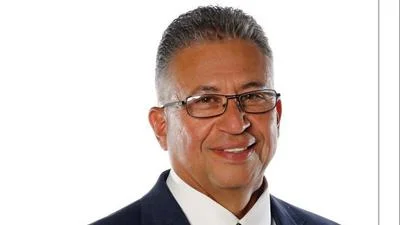New Mexico state Rep. Linda Serrato (D-Santa Fe) said she and many others in the state legislature think it matters that citizens have the right to receive gender-affirming care without worrying about reprisals.
The Reproductive and Gender-Affirming Health Care Freedom Act was approved by the House Health and Human Services Committee along party lines Feb. 3. The bill itself does not directly protect access to abortion and other procedures, but it does block local governments and other public bodies from standing in the way.
Serrato is leading the charge on House Bill 7, a proposal she believes will ensure access to healthcare services already protected by New Mexico law.
“It’s so important to me, and to so many of my colleagues, that they feel that freedom to have that healthcare access without being scared of being punished, or jailed or something else," Serrato said.
Specifically, the bill outlines restrictions for public bodies, including local governments, commissions, boards and any other entity that receives public funding, while also blocking them from discriminating against people who choose to access reproductive healthcare services, such as abortion and fertility treatments, as well as gender-affirming services, like hormone treatments and certain surgeries.
It also will prevent new legislation or resolutions from interfering with those services.
Three Republicans on the committee argued it could open the door for lawsuits, especially in rural communities.
“Let’s say, in a very rural area, there’s a doctor who does not believe in abortion but somebody came to them and said, 'I need an abortion.' If there wasn’t a facility, they could not exempt out of that. It’s a huge concern,” said Rep. Stefani Lord (R-Sandia Park).
Serrato does not agree with that assessment.
“It does not require anyone to have new practice or to do new practices that they haven’t done before. It just ensures that you are not discriminated against," Serrato said. “All this does is ensure there’s not a checkerboard of reproductive healthcare laws of gender-affirming care laws on the books."
Gender-affirming care encompasses a range of social, psychological, behavioral, and medical interventions “designed to support and affirm an individual’s gender identity,” according to the World Health Organization.
The interventions fall along a continuum, from counseling, to changes in social expression, to medications, such as hormone therapy.
For children in particular, the timing of the interventions is based on several factors, including cognitive and physical development as well as parental consent. Surgery, including to reduce a person’s Adam’s apple, or to align their chest or genitalia with their gender identity, is rarely provided to people under 18.









